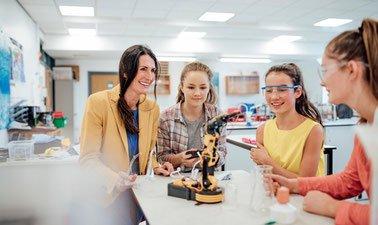MOOC List is learner-supported. When you buy through links on our site, we may earn an affiliate commission.

MOOC List is learner-supported. When you buy through links on our site, we may earn an affiliate commission.
The course explores how Physical Computing devices – from BBC Micro:bit to Raspberry Pi and Arduino – can enable educators to apply a constructionist approach to computing in the classroom, using real-world contexts to engage and inspire learners to be creative with technology.
You will also learn about teaching approaches and how they relate to computational thinking.
This course is part of the Teaching with Physical Computing Professional Certificate.
What you'll learn
- A comprehensive introduction to Project-Based Learning and Physical Computing
- An understanding of the ‘big picture’ of Physical Computing, and why it’s essential to STEM & -Computing education
- An introduction to how the Arm School Program structures its PBL teaching and learning resources
- A deeper sense of the practices which underline Project-Based Learning, from teaching approach to learning theory
- Resources that help you to deliver an engaging, practical and inclusive class for your students
- Finish the course with a classroom investigation, which helps you put your learning into practice
Syllabus
Module 1 Introduction
Module 2 Required hardware and software (micro:bit, Arduino, Raspberry Pi)
Module 3 The big picture of physical computing
Module 4 Brief description of the orthodoxies
Module 5 The big picture of learning
Module 6 The ASP approach
Module 7 Comprehensive reflection on many learning theories
Module 8 Comprehensive reflection on many teaching approaches
Module 9 Computational thinking
Module 10 Classroom investigation
MOOC List is learner-supported. When you buy through links on our site, we may earn an affiliate commission.
MOOC List is learner-supported. When you buy through links on our site, we may earn an affiliate commission.
